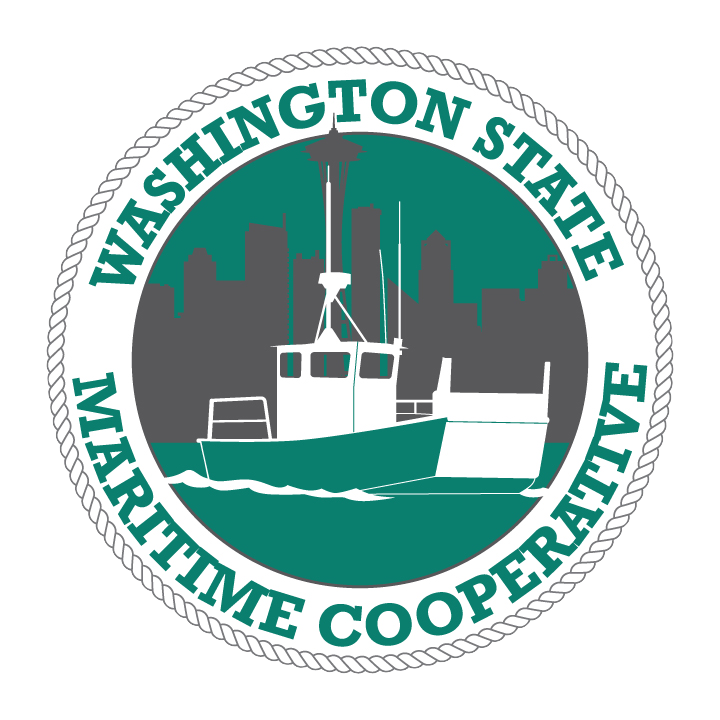WASHINGTON STATE MARITIME COOPERATIVE PRESENTS
Oil Spill Information Seminar LIVE!
8:00 AM to 3:30 PM, Thursday, October 23, 2025
Dear WSMC Members,
Join us IN PERSON for our annual WSMC Member Seminar. Location still to be determined.
We have a robust program this year with great speakers and content. The seminar will also be streamed live and will include the opportunity for virtual attendees to engage in the program and conversation.
Please register in advance for this meeting here: REGISTER
Virtual attendees will receive an email with the link to join the seminar one week prior to the seminar.
We look forward to seeing you there!
Program & Agenda
Plan Activation and Initial Response
Vessel Registration and Spill Management Teams
A Report from the Washington State Department of Ecology
Case study Washington Mystery Oiling Event
Navigating Crisis: Insights from RADM Meredith Austin, USCG (Ret.) on Emergency Management Leadership
In this episode, we sit down with RADM Meredith Austin, USCG (Ret.), to explore her distinguished career in emergency management and her pivotal roles in some of the most challenging disasters, including the Deepwater Horizon oil spill response. We discuss the vital contributions of the U.S. Coast Guard Strike Teams and the lessons learned from coordinating large-scale, multi-agency operations. Tune in for a deep dive into crisis leadership and the evolution of disaster response.
Response Lessons from the Cosco Busan oil spill
Underestimated spill volume, poor visibility, and confusion were only some of the challenges Barry McFarland faced when he became Incident Commander in San Fransisco after the MV COSCO BUSAN collided with the Bay Bridge. When it comes to putting early response to the test, credibility is your number one tool. Six months of built-up trust can disappear in just a few response hours by releasing misleading information. The Captain of the Port found this out the hard way on day seven of this event when he was relieved as Federal On-Scene Coordinator because of a lack of confidence.
Emergency Response Towing Vessel
There's a lot to be learned when it comes to the Washington State Emergency Response Towing Vessel. Why do we need it? Who pays for it? And how do I get coverage for my vessel? In this episode, we answer all these questions. Captain Moore, Captain Veentjer, Dale Jenson, and Sonja Larson explain the history, funding, and activation of the ERTV located at Neah Bay.
Chemical and Physical Properties of Oil
WSMC Response Manager, Dan Smiley, talks with Dr. Tom Coolbaugh about the chemistry of oil products and his journey from a bench chemist at Mobile Chemical Company to the Oil Spill Response Technology Division at ExxonMobil.
Shoreline Cleanup Assessment Technique (SCAT)
Dr. Ed Owens guides us through setting up a shoreline cleanup program and the role of SCAT.
Natural Resource Damage Assessment (NRDA)
Should we exercise Natural Resource Damage Assessment (NRDA) during exercises? Can NRDA be separated from other response tasks? Join me and my guest Greg Challenger, President, and Marine Scientist at Polaris Applied Sciences, Inc., as we explore the NRDA process, its interconnectedness to all things environmental, and the appropriate time to activate an RP NRDA Liaison.
JIC Messaging - Getting it Right
Messaging is critical to the success of a response. So how do We get it right? The news cycle used to be 12 hours, and we could plan on putting out information at a press conference. Now the news cycle is five minutes or less, so when do we activate the PIO? What information can they put out without UC approval? What do we say when asked about spill volume, dispersants, and wildlife? These are hard questions. In this episode of the tactics meeting, Sam Sacco, President of Strategy & Communications, guides us through the answers.
Wildlife Response
Wildlife response during an oil spill is critical but often misunderstood. We see pictures of volunteers with soap and brushes cleaning oil from birds. But that cleaning is just a tiny part of the overall response to wildlife impacted by oil. How do you house an adult beaver that has evolved to chew through anything? How will Orca, seals, and other marine mammals be affected? In this episode of The Tactics Meeting, Jenny Schlieps, and Chris Battaglia of Focus Wildlife take us on a journey to the wild kingdom.

